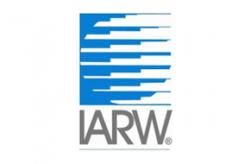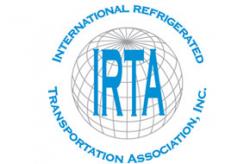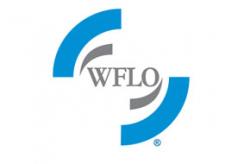Government Connection
On Wednesday, April 20, 2022, GCCA joined 90 other trade associations representing U.S. importers, exporters, transportation providers and other supply chain stakeholder in thanking House and Senate leadership for the passage of Ocean Shipping Reform Act (OSRA) (S. 3580/H.R. 4996) in both chambers. In addition, the letter encourages leadership to come together to conference the differences between the two bills. The reforms included in both versions of the OSRA will help address the longstanding, systemic supply chain and port disruption issues which have been further exacerbated by the COVID-19 pandemic. Given that that supply chain disruptions will continue through 2022 and perhaps into 2023. it is time to finalize the OSRA so that industry can begin to make the necessary changes to help address some of the unreasonable business practices the bill targets, especially strengthening the role of the Federal Maritime Commission (FMC). The two bills, as passed, are very complementary. However, there are a few provisions that need to be discussed and reconciled as part of a conference negotiation. Those provisions include:
- A requirement for ocean carriers to adhere to minimum service standards that meet the “public interest.”
- A certification requirement for a demurrage and detention charge.
- An explicit prohibition of carriers from declining export booking.
- A provision 1) prohibiting carriers from failing to furnish or 2) causing a contractor to fail to furnish the facilities and instrumentalities needed to perform the transportation services.
- A provision allowing third parties to intervene in FMC action against ocean carriers alleging anticompetitive conduct.
Read the full letter here
GCCA and North Avenue Capital Host USDA Loan Program Opportunities Webinar
On Thursday, April 21, 2022, GCCA and GCCA member North Avenue Capital hosted a special webinar to highlight financing opportunities available by the United States federal government. In particular, we provided a detailed overview of USDA’s Food Supply Chain Guaranteed Loan Program, which guarantees loans of up to $40 million for qualified lenders to finance food systems projects, specifically for the start-up or expansion of activities in the middle of the food supply chain. The program will support new investments in infrastructure for food aggregation, processing, manufacturing, storage, transportation, wholesaling, and distribution to increase capacity and create a more resilient, diverse, and secure U.S. food supply chain.
Watch a recording of the webinar HERE.
U.S. Says Russia Sanctions Don’t Impact Agricultural Exports
Following the “Tackling Food Insecurity: The Challenge and Call to Action” event convened on Tuesday, April 19, 2022, by Secretary of the Treasury Janet L. Yellen, the U.S. Department of the Treasury’s Office of Foreign Assets Control (OFAC) issued additional public guidance, “Fact Sheet: Preserving Agricultural Trade, Access to Communication, and Other Support to Those Impacted by Russia’s War Against Ukraine”. This guidance outlines the many humanitarian and food-related authorizations issued by OFAC in support of people impacted by Russia’s war. At the event, attendees discussed the need for an urgent response to the threat of rising food insecurity exacerbated by Russia’s war against Ukraine. As part of that response, this guidance provides consolidated information for financial institutions, non-governmental organizations (NGOs), and market participants to more easily assess whether they are engaging in authorized or exempt transactions. In addition, OFAC issued a new Russia-related general license (GL) to authorize transactions related to certain activities of NGOs in Russia and Ukraine.
Read the Fact Sheet: Preserving Agricultural Trade, Access to Communication, and Other Support to Those Impacted by Russia’s War Against Ukraine HERE.
DOL Announces Proposal to Reconsider, Revoke Arizona’s State OSHA Plan
On Wednesday, April 20, 2022, the U.S. Department of Labor announced a proposal to reconsider and revoke the final approval of Arizona’s State OSHA plan, in response to nearly a decade-long pattern of failures to adopt and enforce standards and enforcement policies at least as effective as those used by the department’s Occupational Safety and Health Administration. State plans are OSHA-approved job safety and health programs operated by individual states rather than federal OSHA. The OSH Act encourages states to develop and operate their programs. OSHA approves and monitors all state plans, and provides up to 50 percent of each program’s funding. OSHA has grown increasingly concerned that actions by the Arizona State OSHA Plan suggest the state is either unable or unwilling to maintain its commitment to provide a program for worker safety and health protection as the OSH Act requires. According to DOL, Arizona has failed to adopt adequate maximum penalty levels, occupational safety and health standards, National Emphasis Programs and – most recently – the COVID-19 Healthcare Emergency Temporary Standard. If OSHA determines that a state plan is failing to comply with its obligation to remain at least as effective as OSHA, the agency may initiate proceedings to revoke final approval, and reinstate federal concurrent authority over occupational safety and health issues covered by the state plan. The proposal is available for public inspection at the Federal Register, and was published on April 21. With its publication, OSHA marks the start of the revocation process. The notice makes no substantive changes to the Arizona State Plan, nor does it give federal OSHA the authority to enforce occupational safety and health standards in Arizona.




Add new comment